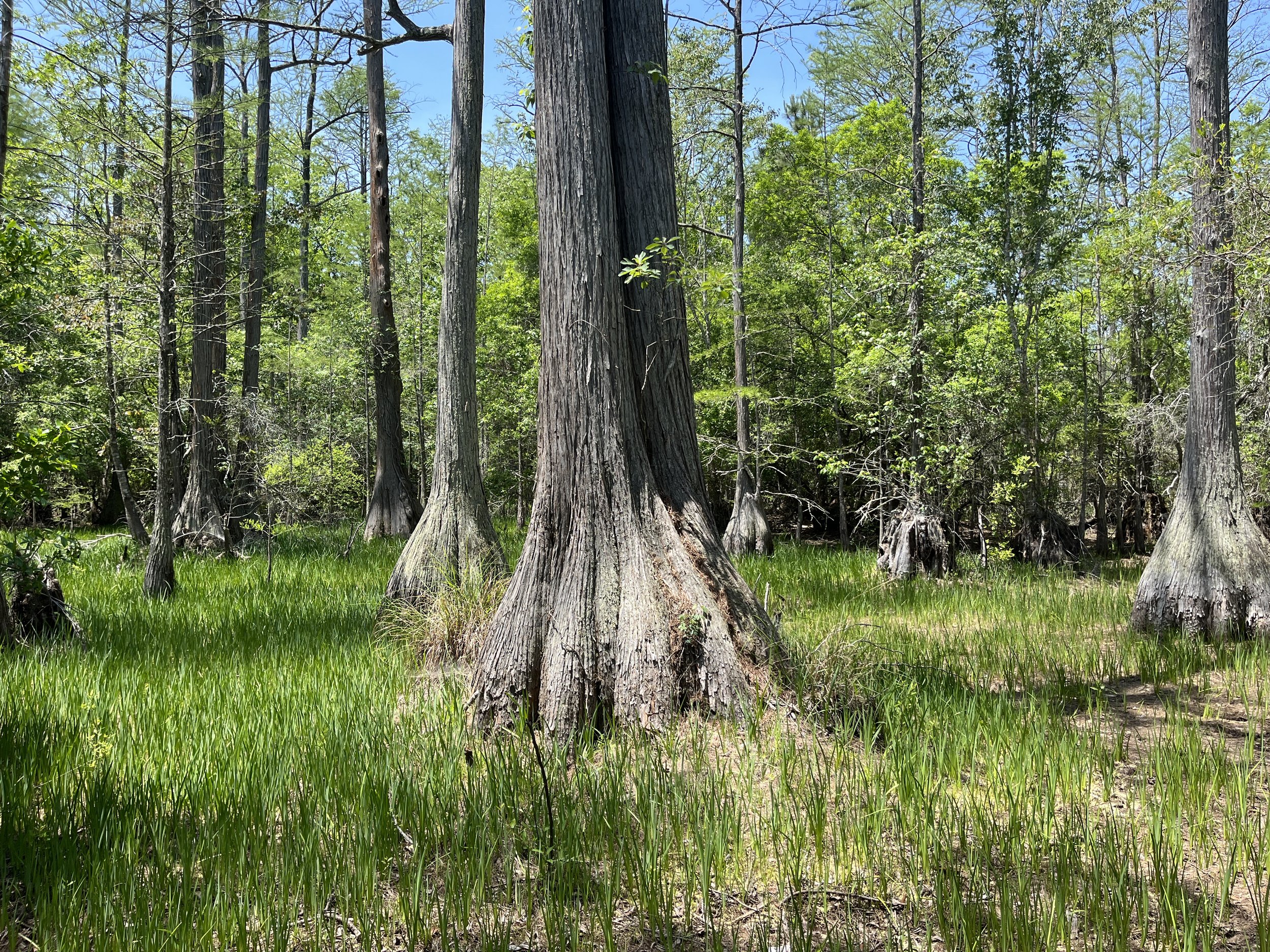
Carolina Bay Workshop
What’s included
This one-day class will focus on Carolina Bays, unique anomalies present in the Sandhills and Coastal Plain. These odd depressions in the landscape have puzzled naturalists for many decades. They host an important and unique ecology because of their hydrology. While isolated from any tributaries, bays often hold water in winter and spring, then drying by mid-summer. Many plants and animals have come to specialize in these conditions. Savage Bay presents a unique opportunity for observation because of its accessibility and the beautiful pond cypress savanna within.
The trail to the bay will take us through a Sandhills scrub oak forest. We’ll explore Sandhills plants including the four scrub oaks. TLC had a song about scrubs, you know. They didn’t “want no scrub,” but I love scrubs, so we’re going to talk about them. Other common plants are poison oak, persimmon, and sandhills hawthorn. With any luck, a few fall wildflowers will still be blooming.
Before entering the bay, we’ll discuss various hypotheses for the formation of these features before narrowing down the explanations to the one currently most supported by scientific evidence. I’ll hold you in suspense until then. I will also explain the ecological importance of Carolina bays, with examples from the scientific literature and a discussion of their current level of protection.
Along the bay border, we will explore a pocosin plant community, host to species such as redbay, sweetbay, fetterbush, titi, and gallberry. The middle of the bay opens up into a picturesque plant community known as the pond cypress savanna. In addition to the pond cypress and water tupelo, we’ll see honeycup (Zenobia) and pondspice (Litsea), a rare shrub in South Carolina.
While the Sandhills grow more silent in the fall, animals will also be addressed, especially those unique to this ecoregion. Bird species associated with these Sandhills include brown-headed nuthatches, chipping sparrows, and pine warblers.
We’ll travel around the block to Goodale State Park for a late lunch, some prize giveaways, and a walk by the water before our day concludes, probably between 2 and 3 PM.
This training will begin at Savage Bay Heritage Preserve. I will email more specific directions before the trip. In the meantime, more information about the site can be found here: Savage Bay Heritage Preserve.
When: Thursday, August 29; We will start at 9 AM. The day will conclude between 2 and 3 PM.
Who: This training is open to the public. No prior knowledge is required. Minimum age is 16. Participants will receive city info of other participants to encourage carpooling.
Participants should be in good physical shape. Savage Bay has relatively flat terrain, but we may cover some distance. Savage Bay does not have trails, so we will be walking through vegetation and on uneven ground. You should be prepared to possibly encounter briars, mosquitoes, chiggers, and ticks. Poison ivy is present in the bay.
Other Important Notes:
• If available, bring binoculars.
• Restrooms are not available at Savage Bay Heritage Preserve. It is best to leave early enough to stop at a restroom before 9 AM. Otherwise, the woods are available. There are restrooms at Goodale State Park.
• Participants should bring a bag lunch and water and be prepared for a day in the field.
• There is no rain date for this event. I will make every effort to hold it, even in a few rain showers. If the weather or conditions necessitate cancellation, I will notify you and refund your money.
• After registering, you will receive important correspondence via email. If you change your email between now and then, make sure to notify me.
• The bay is typically dry this time of year, but the soil could be mucky in some parts of it. If it is too wet to traverse, I will refund your money.
• I know some people come for the knowledge, others for a chance to win the native plant prizes. My stock currently includes sweetpepper bush (Clethra alnifolia) and strawberry bush (Euonymous americanus). I’ll see what else I can dig up.
Cost: The cost is $75.00 per person and is limited to the first 15 people who register.